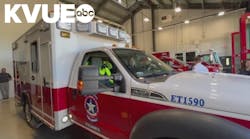Miami-Dade County is the arrival point for the largest number of imported exotic venomous snakes in the nation. More than 1,500 are received annually. To date, the State of Florida has issued approximately 100 venomous reptile licenses to residents in the county, and another 400 permits have been issued throughout the remainder of the state. But the Florida Fish & Wildlife Conservation Commission maintains that an additional 1,500 to 2,500 individuals are keeping venomous snakes without acquiring permits.
According to the Florida Poison Control Center, the South Florida region averages 250 snakebites a year, 30% of which are poisonous. Bill Haast, a world-renowned snake-venom researcher, opened the Miami Serpentarium approximately 55 years ago to produce antivenin for snakebite victims around the globe. When this facility closed in the late 1980s, antivenin was no longer available in the region. Meanwhile, envenomations (venomous snakebites) continued to increase at an alarming rate.
Antivenin Bank Created
Recognizing the gap in emergency medical service for snakebite victims, Miami-Dade Fire Chief R.D. Paulison and Winter Park Fire Chief Dennis Sargent joined forces to improve patient outcomes involving incidents with venomous snakes. Both departments are strategically positioned, since the majority of reptile licenses are issued in the south and central areas of Florida.
MDFR began operating the Florida Antivenin Bank in June 1998. With implementation grants from the state of Florida and the Florida Herpetological Society, a Miami-Dade fire station was stocked with antivenin serum, enabling the bank to treat bites resulting from 90% of the world's venomous snakes.
"Some of the antivenin available through the bank is the only one of its kind in the southeastern U.S," said MDFR Captain Al Cruz, the antivenin program manager. "In the past, antivenin had been kept exclusively in zoos, where the serum was not always readily obtainable."
The Florida Antivenin Bank is accessible on a 24-hour basis to render assistance with venom-related emergency calls involving requests for snake serum in and outside of the county. Services can be activated through MDFR's Communications Center by dialing 911.
An extension of the bank was established at Winter Park Fire Rescue in Central Florida to expedite availability of serum to all residents throughout the state. This site guarantees deployment of antivenin within one hour to urban communities and two hours to rural areas.
Antivenin resources also are available nationwide and worldwide, if requested. The bank has encountered unusual requests on a national and international basis and has successfully mitigated the incidents with a positive patient outcome. Previously, the outcomes resulting from venomous snake-bites had a high morbidity rate and a much higher mortality rate.
Cobra Bites More Common
Local hospitals have requested serum from the Florida Antivenin Bank on numerous occasions to treat critical patients who have survived poisonous snakebites. These incidents have involved a variety of species, but bites from the exotic cobras seem to have become more prevalent. The bank was activated to assist its first cobra-bite victim in Albuquerque, NM, in March 1999. The patient had a successful outcome after being bitten by an Indian cobra.
On Nov. 21, 1999, antivenin bank services were requested for an Asian cobra bite in Hollywood, FL. A male teen had been bitten on the finger and lay semi-conscious at a local hospital while the proper antivenin serum was retrieved and delivered by MDFR's venom response unit. Two to three hours following the antivenin treatment, the patient was alert. He was released from the hospital four days later.
A pet Asian cobra bit an adult male on the hand in Homestead, FL, on April 12, 2000. Less than 30 minutes after the incident, the victim went into respiratory arrest at the emergency room of a local hospital. After administration of the proper amount of serum, the patient recovered and was released from the hospital a week later.
In the Orlando region on Aug. 5, 2000, an adult male was bitten on the hand by an Asian cobra. CPR was being administered when paramedics arrived. The victim remained in respiratory arrest until the antivenin bank was able to relay an initial supply of serum via Florida Highway Patrol. The following morning, American Airlines transported an additional dose of the lifesaving serum from Miami. That same evening the patient was awake and alert with no neurological problems. He was released from the hospital five days later.
An Egyptian cobra bit an adult male on the hand in Jacksonville, FL, on Aug. 30, 2000. This snake is the second-deadliest cobra on the African continent. Vials of serum were transported from Miami via American Airlines, and the victim was stabilized within six hours.
Aiding Medical Community
"Snakebites are silent killers," said Dr. Donald Rosenberg, MDFR's medical director who oversees protocols for the operation of the antivenin bank. "Since emergency responders for snakebite victims usually are not aware of a delay in symptoms, we are providing training to our personnel and to area hospitals upon request."
As a result of the Florida Antivenin Bank, emergency responders and hospitals alike are better able to deal with envenomation incidents. Cruz trains emergency responders in the latest snakebite treatment modalities and how to identify native and commonly kept exotic venomous snakes.
The Florida Antivenin Bank works closely with regional hospitals and with local and national poison-control centers. In an agreement with area hospitals, the MDFR stores and maintains enough serum to cover the daily needs of 30 facilities for native and exotic snakebite victims in the South Florida region. The bank also supplies protection to U.S. Fish and Wildlife officers and to MDFR's Urban Search and Rescue (USAR) Task Force during deployment to international disasters.
Serum Shortages
Less and less antivenin serum is being manufactured every year, making the creation of the Florida Antivenin Bank that much more vital. Due to the drastic reduction in the manufacture of serum worldwide, most hospitals would be at a disadvantage to treat snakebite victims without the supply available through the antivenin bank. This centralized depository, accessible through the 911 system, also reduces the amount of serum that medical facilities need to purchase and store.
Miami-Dade Fire Rescue and American Airlines have combined efforts to deploy antivenin anywhere in the world on an emergency basis. The airline will transport serum free of charge on any regularly scheduled flight to worldwide destinations departing from its Miami hub.
"Because of the Florida Antivenin Bank, there is a greater chance of surviving a venomous snakebite anywhere," Paulison said. "This much-needed service has improved patient outcome by rendering aid across department boundaries and is our latest endeavor to provide innovative quality programs for the benefit of all."
For more information on the Florida Antivenin Bank contact Cruz at 786-331-5000. The department's website may be visited at www.co.miami-dade.fl.us/firerescue.
LaVerne Guillen is a public information officer with the Miami-Dade Fire Rescue Department.







